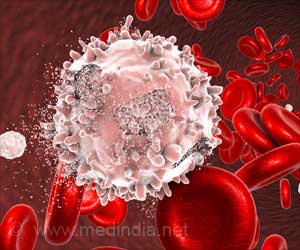Amazing base-editing treatment works for a teenager suffering from cancer when all other treatments fail.
- A 13 year old girl with cancer is the first person in the world to receive ‘base-edited’ cells after chemotherapy and bone marrow transplant failed
- As a last resort, researchers attempted a groundbreaking experimental therapy in which donated immune T-cells were genetically edited to target her cancer //
- She is now cancer-free, which gives hope to other children suffering from the same disease
After nearly a month, Alyssa was in remission, and after a second bone marrow transplant to restore her immune system, the leukemia is now undetectable. She is recovering and is being monitored periodically.
“This is a great demonstration of how, with expert teams and infrastructure, we can link cutting-edge technologies in the lab with real results in the hospital for patients. It's our most sophisticated cell engineering so far and paves the way for other new treatments and ultimately better futures for sick children”, said researchers.
Base-Editing for Treatment of Cancer
To create the cells, healthy donor T-cells needed to be engineered in four stages. Firstly, receptors needed to be removed from the donated cells to avoid rejection.Next, a glycoprotein known as CD7 identifies them as T-cells was removed so that the engineered cells did not end up destroying each other.
In the third step, a second glycoprotein, called CD52, was removed to make the edited cells invisible to drugs given to the patient during the treatment process.
For example, changing the nucleotide bases in the gene for CD7 from a cytosine to a thymine creates the equivalent of a genetic full stop, and stops the immune system from attacking T-cells.
Despite months of treatment in hospitals, doctors were unable to get her cancer under control and into remission. The teenager’s parents are over the moon with regards to the treatment and hope that the research works and can be offered to more children suffering from the same disease.
Ongoing Treatment Trial for Base-Editing
The clinical trial for this treatment is currently open and aims to recruit up to 10 patients with T-cell leukemia who have exhausted all conventional treatment options.If shown to be successful, the bone marrow transplant and T-cell therapy can be offered to children earlier when they are less sick.
This result proves to be quite amazing, although it is still in its preliminary stage and needs further research, which must be monitored and confirmed over the next few months.
Source-Medindia













